- News
- Reviews
- Bikes
- Accessories
- Accessories - misc
- Computer mounts
- Bags
- Bar ends
- Bike bags & cases
- Bottle cages
- Bottles
- Cameras
- Car racks
- Child seats
- Computers
- Glasses
- GPS units
- Helmets
- Lights - front
- Lights - rear
- Lights - sets
- Locks
- Mirrors
- Mudguards
- Racks
- Pumps & CO2 inflators
- Puncture kits
- Reflectives
- Smart watches
- Stands and racks
- Trailers
- Clothing
- Components
- Bar tape & grips
- Bottom brackets
- Brake & gear cables
- Brake & STI levers
- Brake pads & spares
- Brakes
- Cassettes & freewheels
- Chains
- Chainsets & chainrings
- Derailleurs - front
- Derailleurs - rear
- Forks
- Gear levers & shifters
- Groupsets
- Handlebars & extensions
- Headsets
- Hubs
- Inner tubes
- Pedals
- Quick releases & skewers
- Saddles
- Seatposts
- Stems
- Wheels
- Tyres
- Health, fitness and nutrition
- Tools and workshop
- Miscellaneous
- Buyers Guides
- Features
- Forum
- Recommends
- Podcast
feature
Are modern bikes really so much better? Comparing vintage vs new road bikes for ride quality, aero, weight, gearing + more
Bikes have changed quite a lot in the last two decades, particularly road bikes. They now invariably have disc brakes, integration is rife, changing gears is now done with electrical signals rather than a cable, tyres have ballooned... and don't even get us started on hookless or tubeless tech! This 'progress' often divides cyclists. and the road.cc office is no different: I believe that bikes have changed for the better, while road.cc founding father Dave has much more nostalgic views. We decided to head out for a ride to prove each other wrong...
Team Modern
Not everyone at road.cc shared my enthusiasm when the latest Pinarello Dogma X rocked up for its upcoming review. Pinarello says that it "strikes the perfect balance between high-calibre performance and real-world comfort", and in my mind, it's the quintessential modern road bike.
The Dogma X has space for wide 35mm tubeless tyres, it has 12-speed Shimano Dura-Ace Di2 electronic shifting, a sleek integrated front end, endurance geometry, disc brakes, and at £13,300 this particular model really should be the ultimate money-no-object road bike for riders want both speed and comfort.
Team Classic
> 8 bygone bike technologies we're now well rid of
Dave, on the other hand, would argue that the 24 additional years of development have been wasted, and he’d much rather spend his money on something with a bit more history.
Dave's bike of choice to turn back the years is the Colnago CT1 Titanio Lux from the year 2000 (yep, that counts as 'vintage' now... sorry to anyone born before about 1990). It consists of a titanium frame with a carbon fork and rear triangle.
> Cycling trends and traditions that are gone but not forgotten
It too has a Dura-Ace groupset (The 25th-anniversary edition) but "like most things from back then" things were a lot simpler. It’s got mechanical gears and rim brakes.
In Dave's words, the bike "looks absolutely stunning and feels as fast as a knife fight in a phone box." I was quick to point out that even his analogy was outdated, and he'd highlighted another relic that has been superseded by modern tech...
Having had a good poke around the Colnago, I was sure that it was great in its day, but was fairly confident that my modern bike was simply better in every way.
Weight
With the advances in materials, computer-aided design and just a few more years of practice, you might think that the Colnago would be significantly heavier than the Pinarello; but that's simply not true.
The Colnago weighed 8.1kg on the road.cc scales of truth, and the Dogma X came in at 7.18kg.
> How to make your bike lighter
The weight of the CT1 did plummet further, before creeping back up as manufacturers favoured aero tube shapes, disc brakes and fatter rubber. Regardless of the reasons why, we certainly haven't seen progress come on leaps and bounds in the weight department.
Verdict: With no real progress in this area, round 1 goes to Team Retro
0-1
Gearing
It didn't take many miles of riding for Dave and I to realise some pretty significant differences in the gearing of our bikes. There's the obvious differences such as the fact mine is electronic and has 24 gears as opposed to 18, but it wasn't either of these that surprised us most.
The Dogma X has fairly typical gearing for a modern endurance bike with 50/34T chainrings at the front and an 11/30T cassette at the rear, which gives the smallest gear ratio of 1.13:1.
> Bike gears: find out why bikes have so many, and the surprising way they're measured
The Colnago is also representative of its time, with full-size 53/39T chainrings and a 12/25T cassette. Dave's lowest gear ratio is therefore 1.56:1, i.e. much much bigger.
After murmurings that modern cyclists simply need to "harden up", it didn't take too many rollers to convince Dave that gearing on bikes has dramatically changed for the better.
Full-sized rings are great if you're a pro bike racer with legs made of steel, but for the rest of us, semi-compact, compact and sub-compact chainsets make a lot of sense. Pair ,that with today's much wider range cassettes and you make the terrain of an average UK road ride a lot more manageable without the sore knees.
Verdict: A thorough thrashing. Team Modern wins
1-1
Geometry
> Should I buy a race bike or an endurance bike?
When Giant released the TCR in 1997, it introduced the world to compact frame geometry (I can only assume by the medium of fax and a CD). This new-fangled way of thinking about bike frames didn't take off immediately though, and the CT1 released in the year 2000 still has what many would call "classic lines".
Fast forward two decades to the release of the Dogma X, and we're well used to sloping top tubes and bits of exposed seat post. Recent bikes like the Dogma X have been at the forefront of another revolution though, one towards 'progressive' endurance geometry.
Compared to the CT1, the Dogma X has almost gravel bike-esque geometry, with a much longer wheelbase, longer chainstays and more trail (the front wheel is much further in front of you). Much of this elongation is to accommodate wider tyres, but Dave argues that this has made modern bikes feel a lot less lively.
Excuse the cringe-worthy bike reviewer speak, but the CT1 is far more involving to ride: sometimes for the better, sometimes for worse. On a smooth road, it feels lively and rather fast. Get to a descent though, and this liveliness isn't always as welcome. You can also fee every single road imperfection.
> Bike geometry 101: Learn why frame angles & trail matter
Choose the right road, at the right time of year, and the Colnago is a very rewarding bike to ride; however, on any B-Road the Pinarello's frame geometry easily comes up trumps, and is overall a much easier bike to ride in more situations.
Verdict: It's hard to ignore that some dynamism has been lost on today's endurance bikes. Easy or engaging? Take your pick
2-2
Tyres
> Should you get tubeless tyres?
The Colnago CTI Titanio Lux is rolling on a set of 23mm wide Veloflex clinchers (sorry tubular fans). The Dogma X, meanwhile, is on 32mm Continental GP5000 S TRs, set up tubeless with plenty of frame space for even wider.
It's well documented that tyres are getting wider, but considering how similar certain elements of these two bikes are it's hard to see how both were designed for the same purpose just over two decades apart.
Personally, I think tubeless tyres on gravel bikes and mountain bikes make a lot of sense, and this opinion extends as far as the super wide road bike tyres on the Dogma. Whether tubeless technology is genuine progress, Dave would argue that being sprayed in a latex-based fluid is less than ideal, and I think we've got plenty of progress yet to make in this area.
We did both agree that wider tyres are simply the way to go. We now know that in the real world they aren't any slower (even if they feel it), they're much more comfortable, and while Dave tip-toed around cracks, debris and potholes in the road, I was able to relax and plough straight through.
Verdict: How didn't we realise sooner?
3-2
Integration
Look at the Dogma X, and you'll be hard-pressed to find any exposed cable or hoses. They run cleanly through the bars and stem, inside the headset spacers and bearings and then down the inside of the fork and frame. It certainly looks tidy, but is also just about every home mechanic's worst nightmare.
> Has the move to full internal cable routing on road bikes been worth it?
Dave hammered home the point that if I wanted to make even a fairly minor change in my position on the Pinarello, then it would likely incur several hours of expensive labour costs, or an entire day of nonstop swearing.
Bikes without this fully integrated approach are getting fewer and farther between, choosing to marginally improve aesthetics at the expense of simplicity and maintainability.
Verdict: Sometimes less is more
3-3
Aero
One of the major reasons that bikes haven't got significantly lighter in the last 24 years or so is that manufacturers have realised that aerodynamics plays a far bigger role in the speed that we can travel than we ever thought.
Aerodynamics don't just apply to pros or budding racers either, as many of us want to travel further or faster for less effort. This has meant that modern road bikes are sculpted by CFD software and in wind tunnels. Even an endurance bike such as the Dogma X has deep kamm tail tube profiles.
> Aero vs lightweight road bikes
Dave argues that he doesn't care if he saves 20 seconds over 40km of riding, and not so long ago I probably would have agreed. Aero bikes were cumbersome machines which sacrificed every ounce of comfort in order to gain a few seconds.
The latest iteration of bikes though, such as the Dogma X, manage to combine wind-cheating abilities with all the other parameters that make a good road bike. Although we don't have a wind tunnel, I don't think that too many people are going to argue that classic bikes are as aerodynamic as modern ones.
Verdict: Unfortunately for Dave I'm writing this article not him, so I'm giving the point to Team Modern. #freespeed
4-3
Disc brakes
Controversial! Or has that whole debate finally blown over?
It might surprise you that even when fighting for the disc brake corner, I don't think that the braking performance is inherently bad on rim brakes. The Colnago has Ambrosio aluminium rims, and it's hard to believe that the braking system is as old as it is. The limiting factor is most definitely the tyre on the tarmac and not the pads on the rim.
> 8 reasons not to get disc brakes
However, I don't think that outright stopping power or even the modulation of disc brakes is their biggest selling point. It's no coincidence that the disc brake revolution has coincided with greater frame clearances, and we can now use wide stable wheels paired with comparatively fat tyres because they no longer have to fit within a calliper that was often limited to 28mm.
A further positive of disc brakes is the fact that although it might seem harrowing to use a set of very expensive wheels on wet rides, disc brakes mean that it's a far less daunting prospect than in days gone by. Not only is the braking consistent (rim brakes on carbon wheels had...mixed results), but you're not wearing out your fancy wheels.
Verdict: Disc brakes are progress but not for the reasons you might think
5-3
Materials
Carbon fibre is a wonder material that is now everywhere; even running shoes now include the stuff. Chances are if you're buying a high-end performance bike, it will be made of this magical composite. But it's not completely new.
Even back in the year 2000, carbon fibre was being used in bikes. The CT1 not only has a carbon fork, but also a carbon rear triangle. Carbon is good because it's extremely light for its strength, and manufacturers can tailor its properties depending on the location within the frame.
> What type of road bike should you buy in 2024?
Carbon fibre has enabled designers to be more adventurous with their designs, sculpting complex shapes which blend both stiffness and compliance. The main drawback of carbon fibre is its impact strength.
In the future, we could see a resurgence of metal bikes as 3D printing comes to the fore. For example, we saw Filippo Ganna break the hour record on a 3D-printed Pinarello Bolide F HR 3D track bike. Could this be the norm in 25 years time?
Verdict: Modern-day materials are simply better. If you don't like carbon then there's still plenty of aluminium, steel and titanium options though
6-3
Stiffness
For the final part of our test, we decided to swap bikes. The Colnago certainly felt snappy in comparison to the cruisey Dogma X.
Out the saddle it also felt plenty stiff enough. I was expecting some wallowing from the aged frame, but it felt tight and direct. This was likely helped by the 23mm tyres pumped up to an obscene pressure.
The main difference in my eyes between the two bikes was how comfortable they are. Your wrists tire much quicker on the Colnago, as did my rear end. Sure, the wide tyres, more advanced saddle and carbon bars can all take some responsibility for this increased comfort, but it's also likely that the frame is more compliant.
Verdict: The stiffness has improved, but it's the newfound compliance that has a bigger impact on how the two bikes feel to ride.
7-3
So, does retro rule?
On a day that started with an argument, one thing had become very clear: we both absolutely loved meandering around the Cotswolds on our respective bikes.
There's now plenty that we can agree on. The simplicity of bikes from yesteryear is undoubtedly a positive, and we both hope that it's still possible to buy bikes without fully integrated front ends in the future. Mechanical groupsets and rim brakes still work just fine.
We've also come to the conclusion that gearing, geometry and tyres are all areas that it's hard to deny have improved over the last two decades or so. Road bike gearing is now much more appropriate to the average Joe (or Dave or Jamie), the laid-back geometry approach of late allows for more control and comfort over long distances, and it's a miracle none of us realised that wider tyres are so much better sooner.
So, are modern bikes rubbish? In our opinion, absolutely not; but it is fair to say that they are completely different beasts. Just like a classic car, with a little bit of love and attention, older bikes are still perfectly capable of enabling you to experience the full joys of cycling.
However, for my everyday riding, I'll be sticking to the here and now. Buy a new bike with your head, buy a classic one with your heart.
Let us know which of these lovely bikes you’d choose in the comments below, and if you think bikes have changed for the better.
Jamie has been riding bikes since a tender age but really caught the bug for racing and reviewing whilst studying towards a master's in Mechanical engineering at Swansea University. Having graduated, he decided he really quite liked working with bikes and is now a full-time addition to the road.cc team. When not writing about tech news or working on the Youtube channel, you can still find him racing local crits trying to cling on to his cat 2 licence...and missing every break going...
Latest Comments
- Barraob1 1 hour 28 min ago
It was cheaper and better when the IVCA ran it. Elite events don't give a shit about riders
- David9694 1 hour 34 min ago
Elderly man sentenced following serious crash in Ringwood...
- Slartibartfast 3 hours 29 min ago
What I find most amazing is that they didn't use this an opportunity to encourage drivers to check their vision and get an eye test. I was waiting...
- slc 4 hours 11 min ago
The Cugel I knew typically prevailed on others to prepare food. But I was always curious about the porridge of drist and raisins enjoyed on the...
- kingleo 5 hours 10 min ago
Cyclists have been riding in Bister for about 150 years, and now all of a sudden they are a great danger to pedestrians.
- the little onion 5 hours 36 min ago
I didn't remove the sound because I didn't think that it mattered - quite clearly the swearing was in reaction to an act of frankly horrid...
- Nigel_2003 6 hours 24 min ago
Know how the limiter screws on your derailleur work and use the right ones to keep chain on a manageable cog at the back and/or chainring at the...
- Freddy56 6 hours 47 min ago
Story one: "Here is all the deals at 50% off."...
- andystow 7 hours 51 sec ago
Front wheel trued and tensioned last night. I think it took me well over an hour.

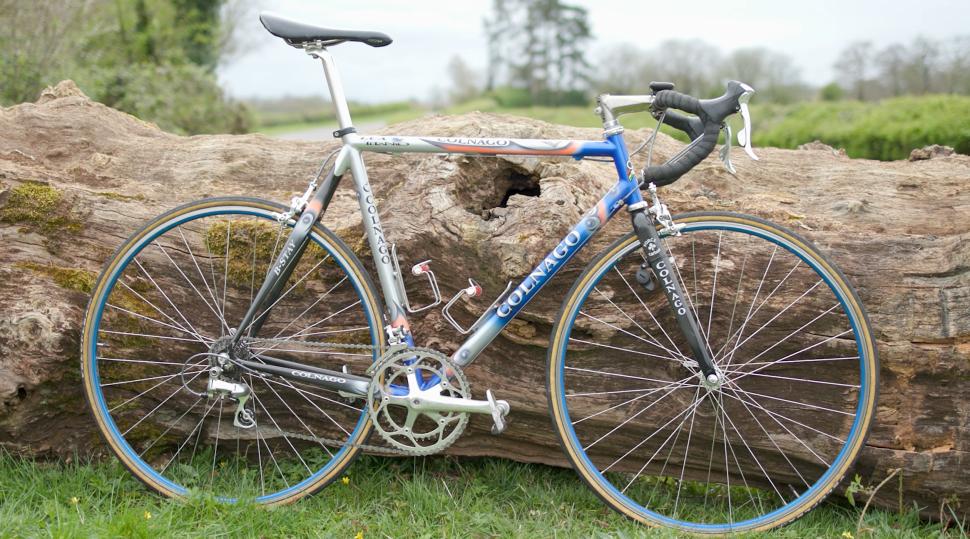
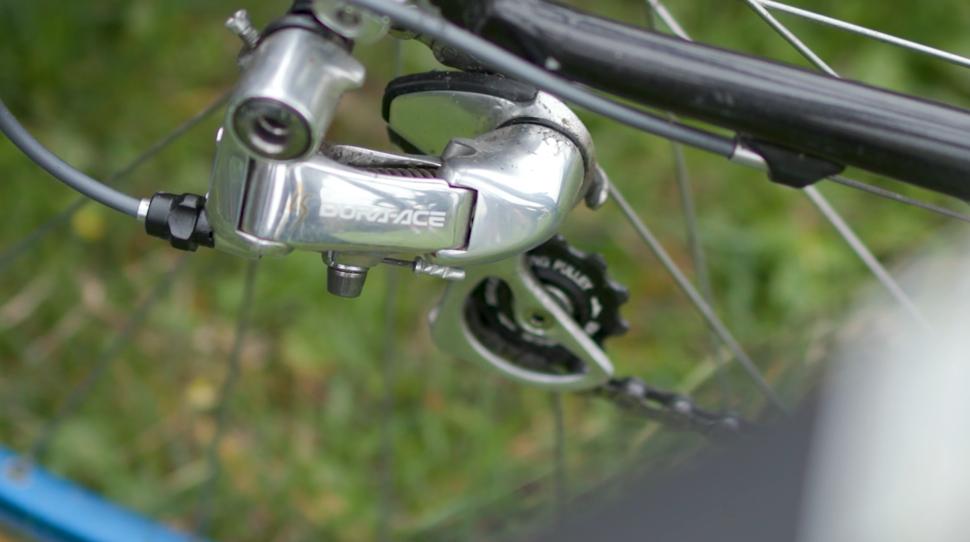
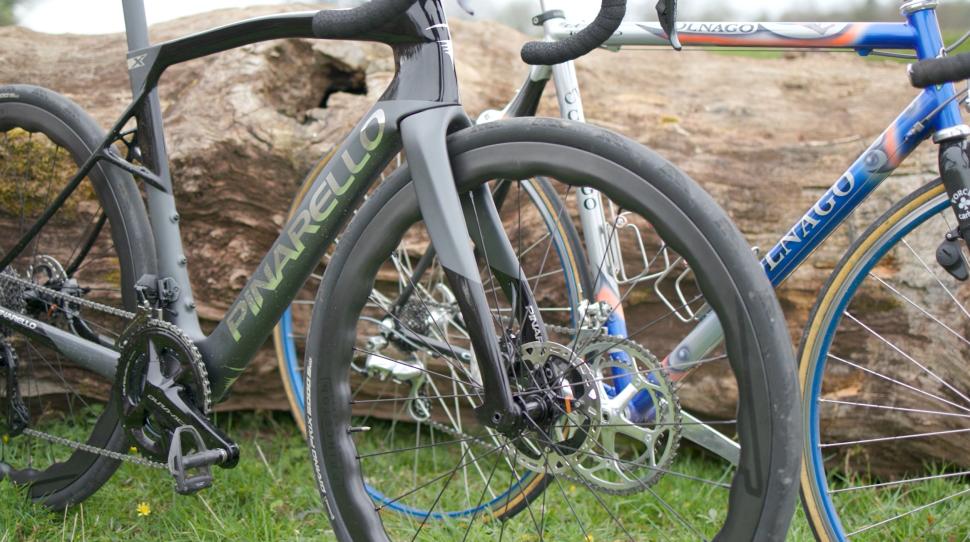
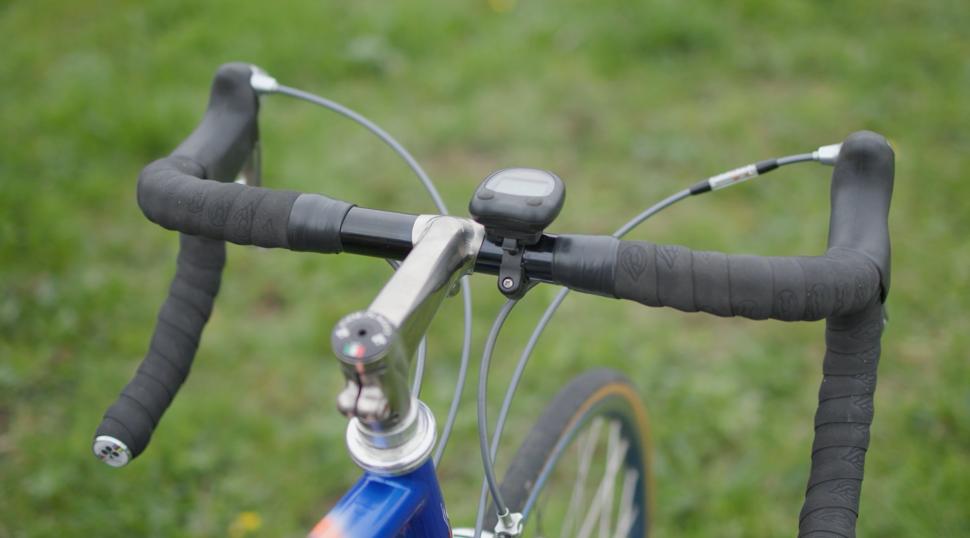
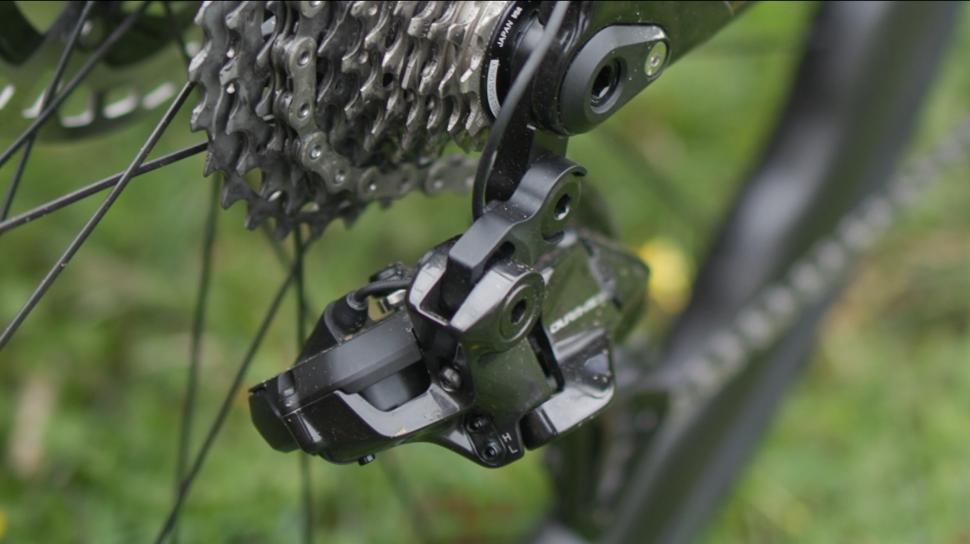
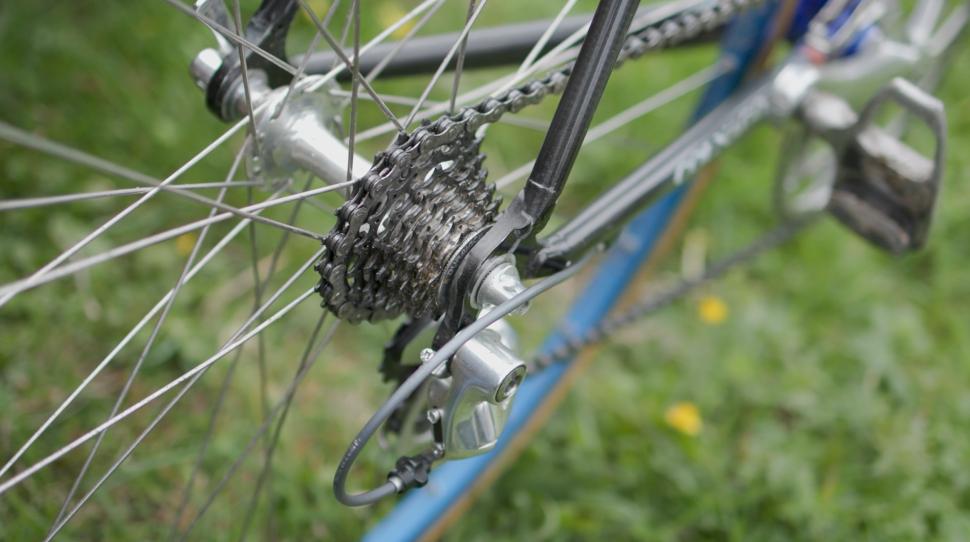
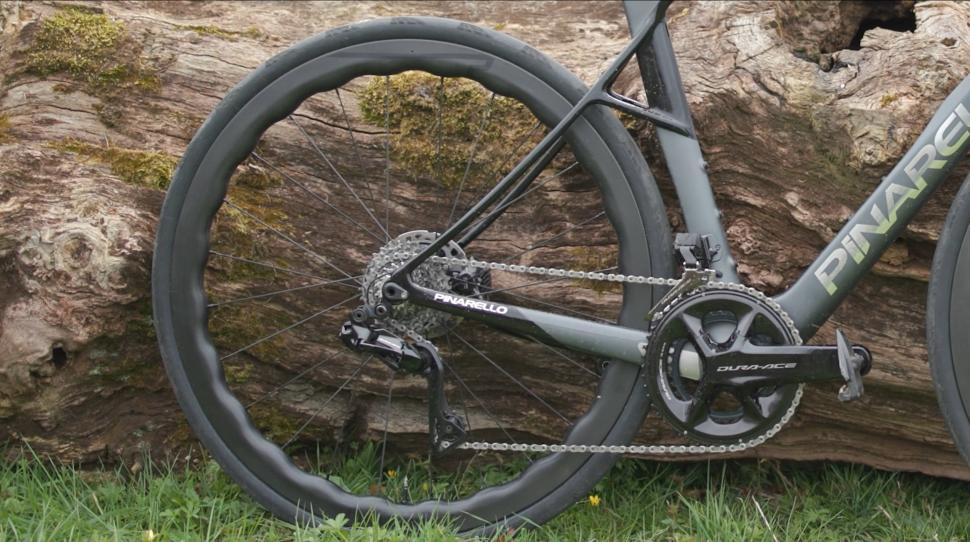
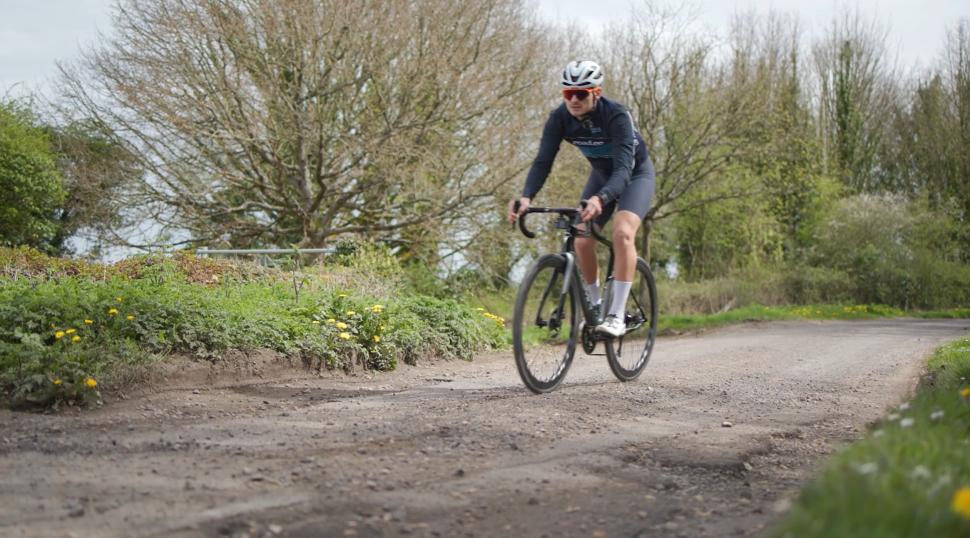
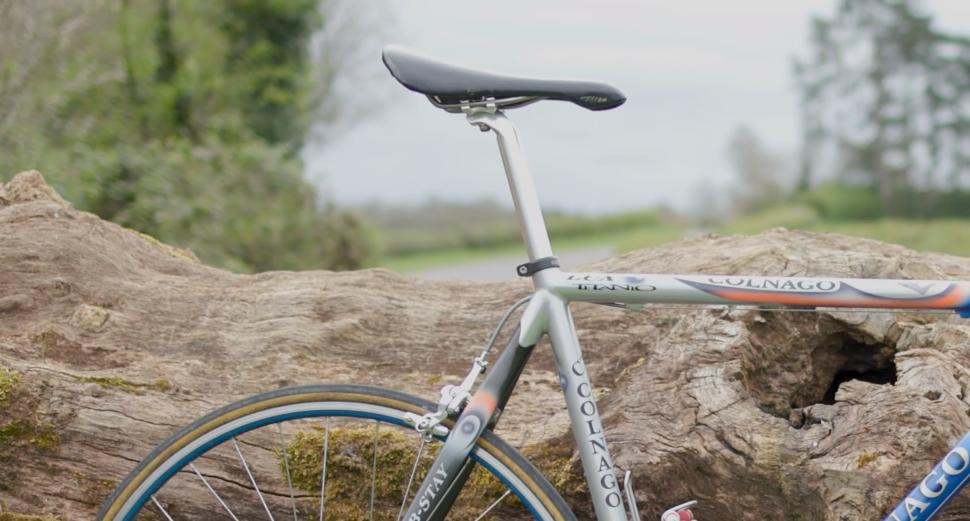
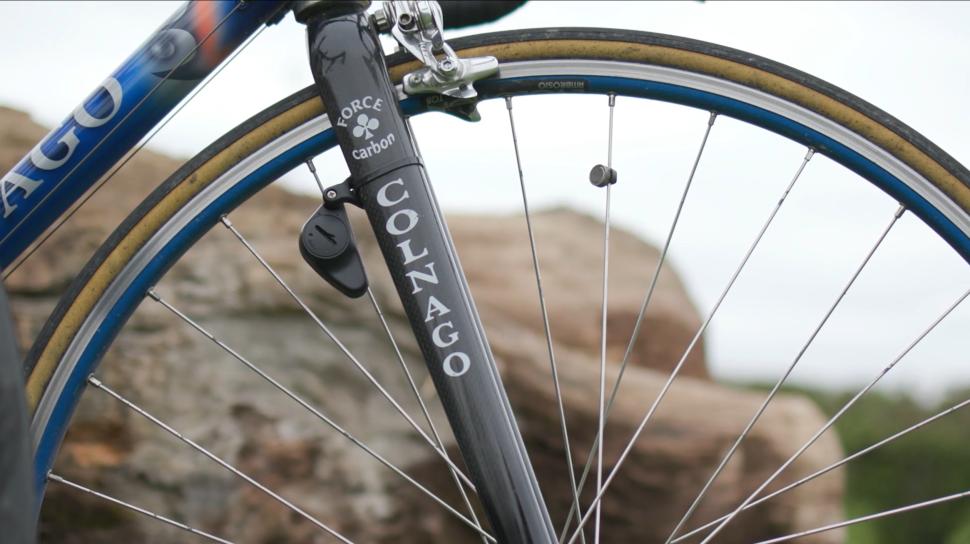
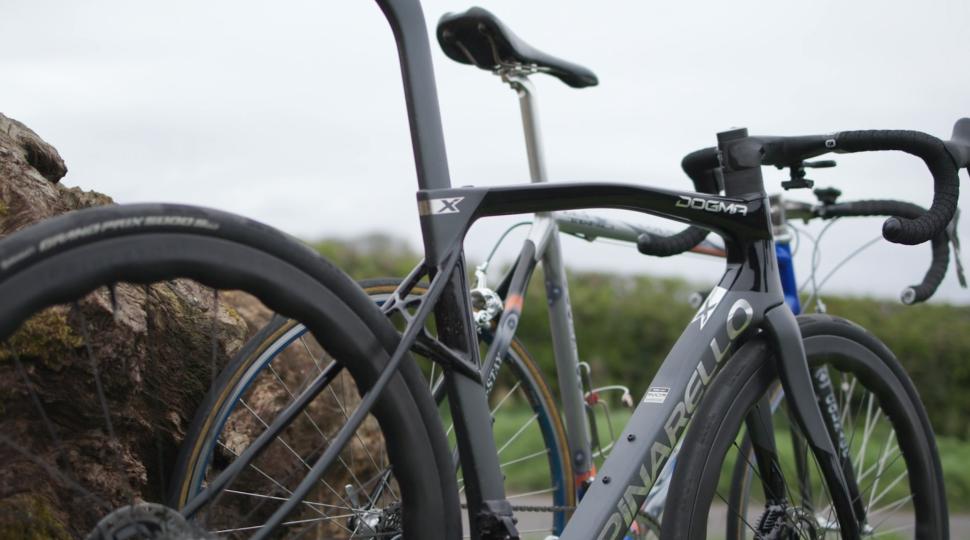
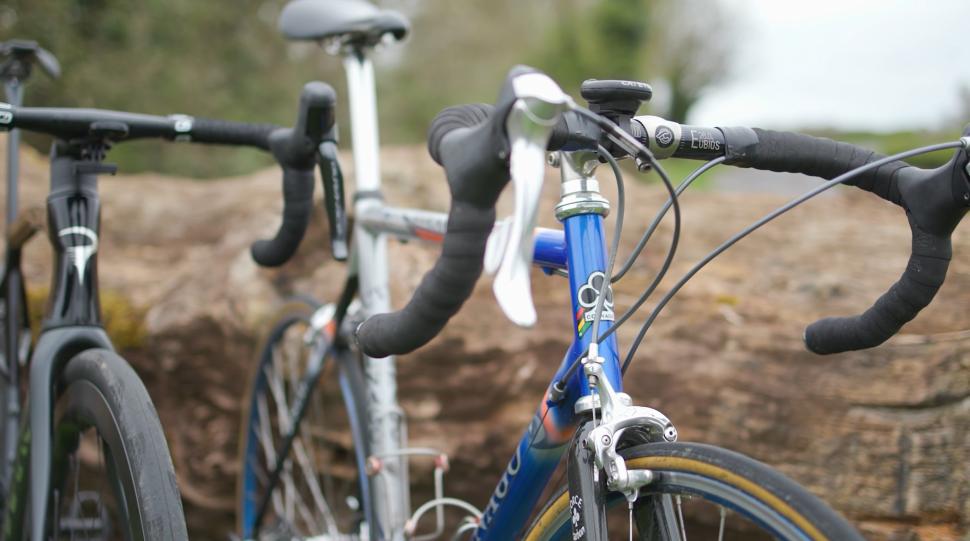
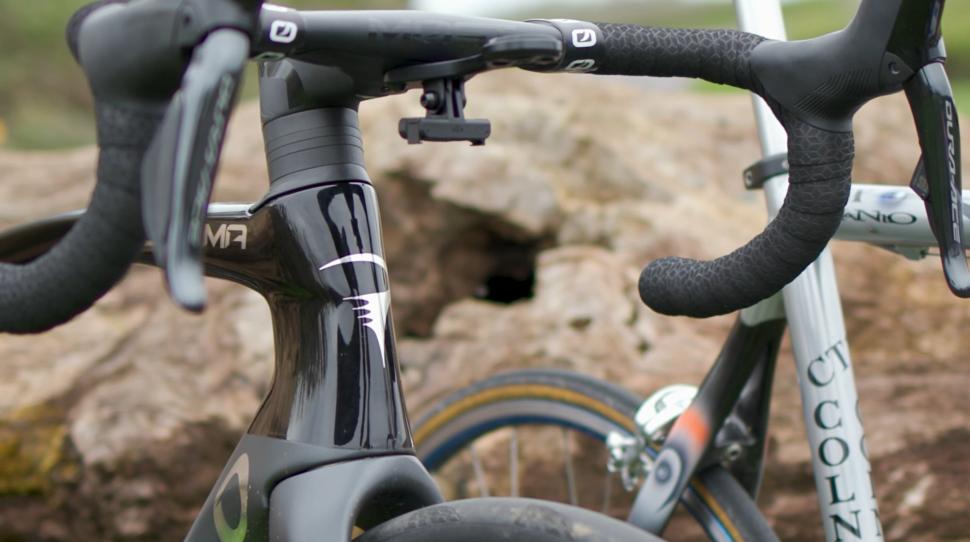
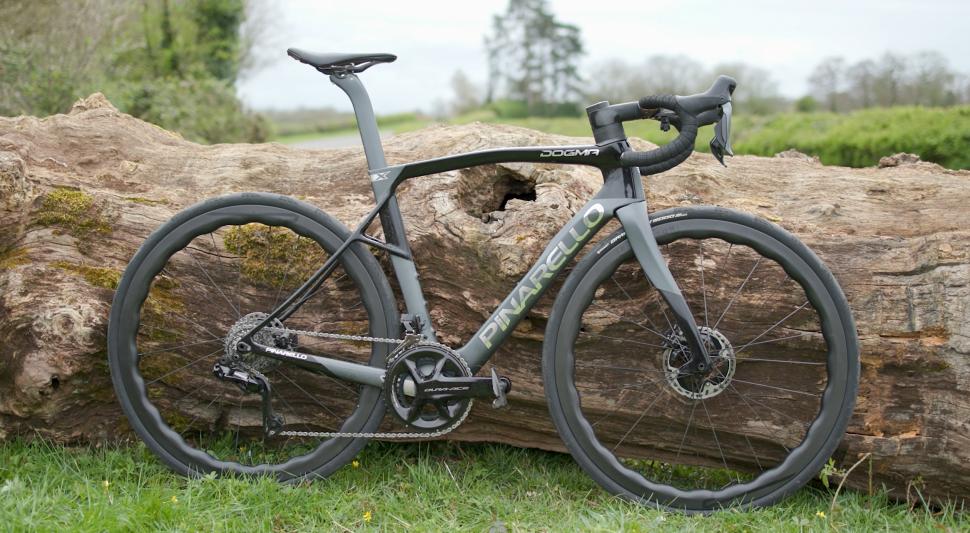
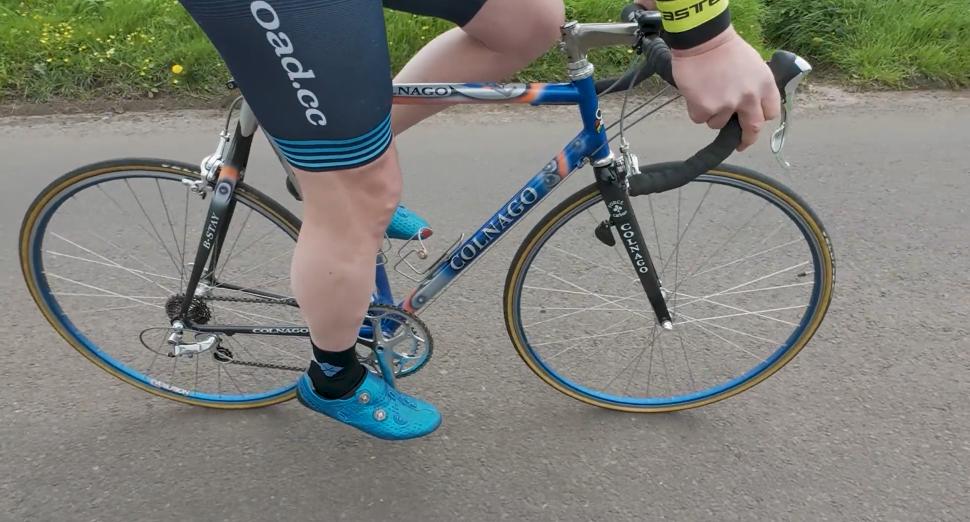
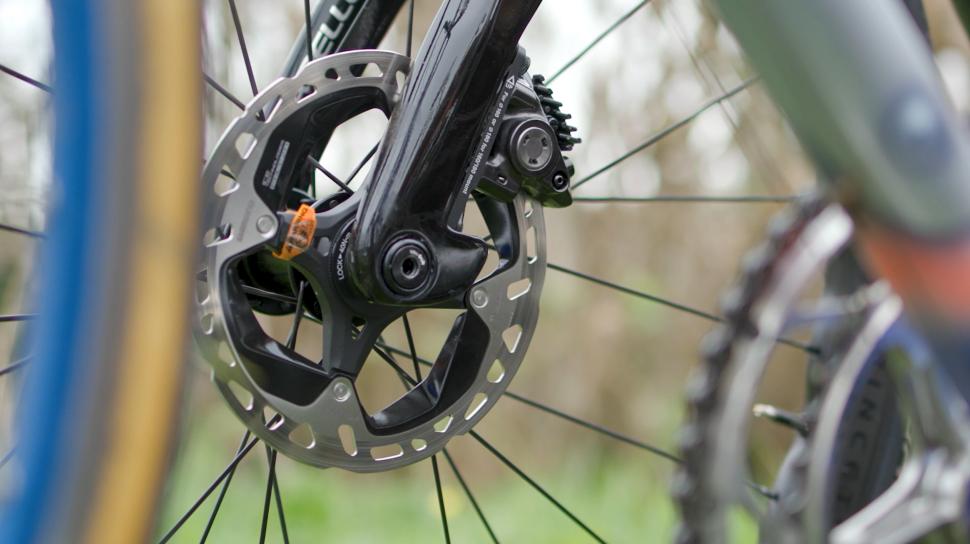
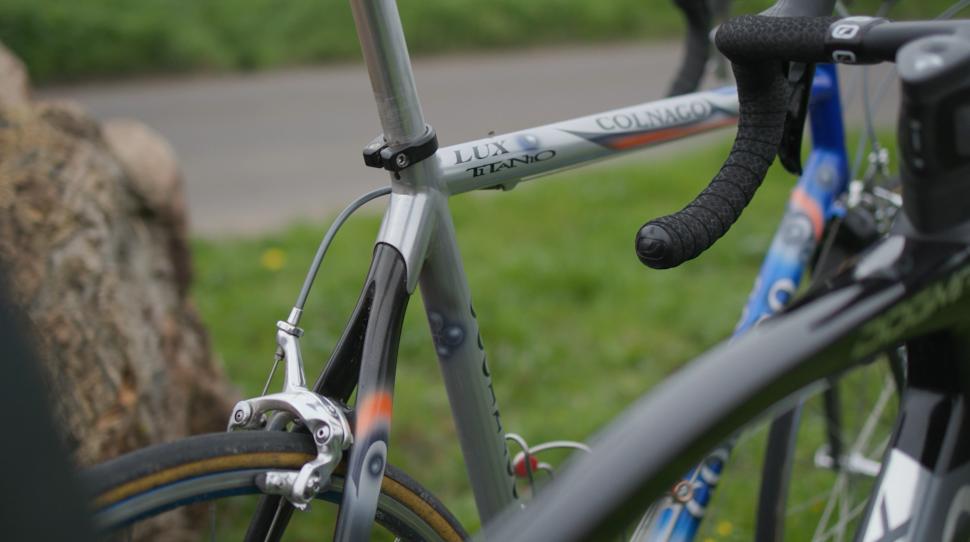
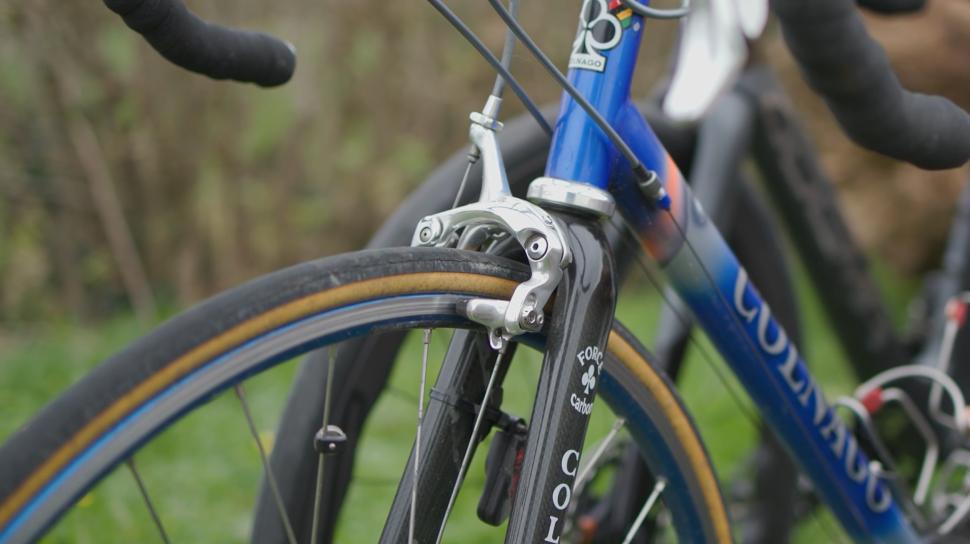

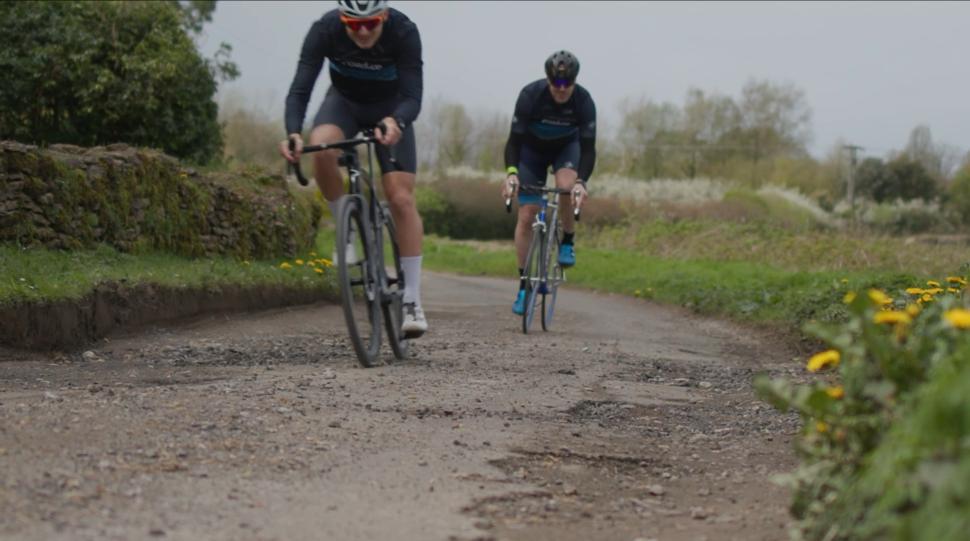
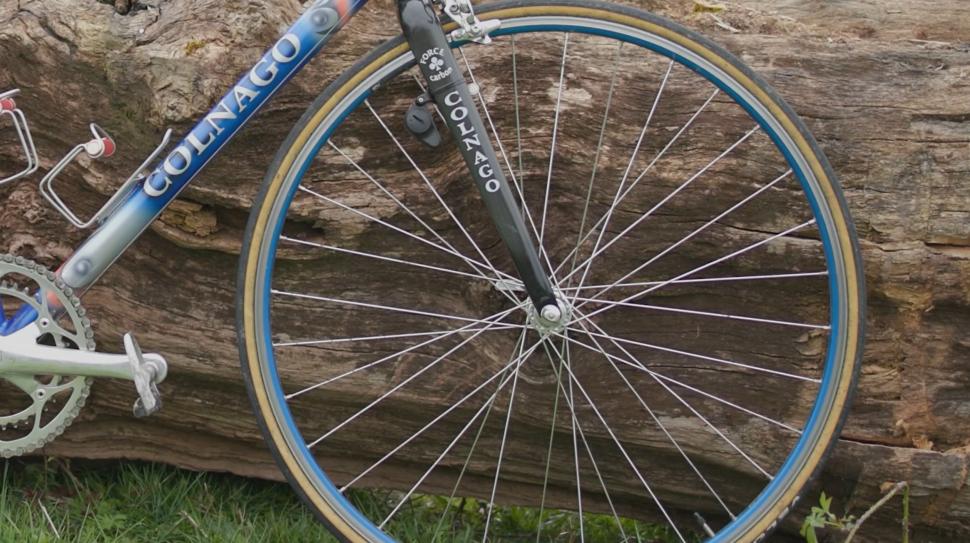
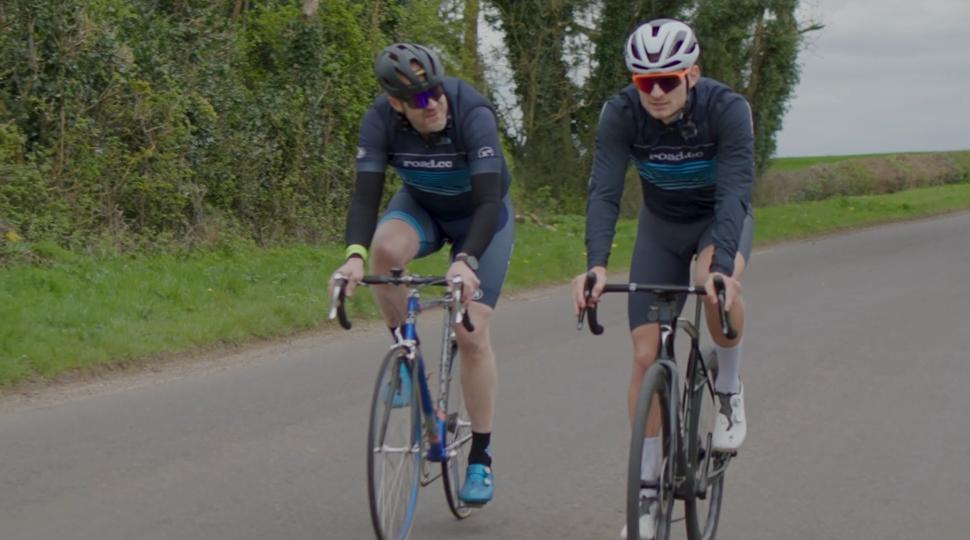
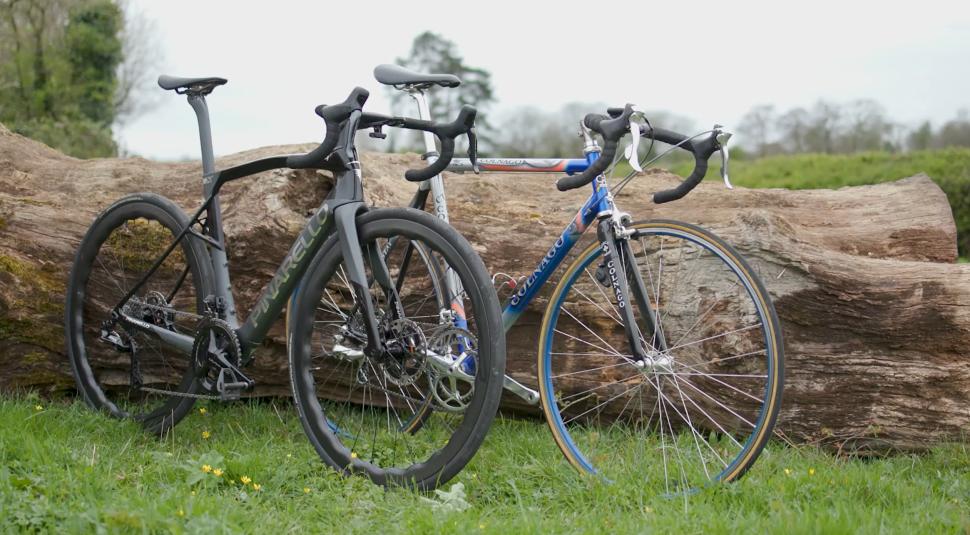
Add new comment
83 comments
Elsewhere on road.cc forum... pissing contests on who has
the rimmiest brakes
the mechanicalist gears
the skinniest tyres
My tyres are definitely harder than your tyres.
And some of us haven't, so don't.
No one is suggesting you shouldn't ride what you want.
It's true, you haven't suggested that. You've just sneeringly and condescendingly said that anyone who is a decent climber shouldn't need lower than 39/23 which, as has been pointed out to you with reference to the fact that many pros habitually now use smaller gears than that when climbing, is nonsense.
Crikey. There is certainly a lot of sneering and condescension in this thread. I'm not sure how much of it was from me though. Anyway, you ride what you want. I really couldn't care less what gears you use.
No just made people feel inferior.
I was going to ride a few miles and go for a cafe stop today but i feel quite inadequate now.
It was certainly not my intention to do that. My point was simply that there is a smallest gear any rider will need. In my case it happened to be the one I mentioned. Any gears smaller than this will be wasted. In view of this I consider the limited or non-availability of smaller cassettes these days a "disimprovement".
Anyway in the big scheme of things what gears you use or how you ride or indeed whether you can ride at all is insignificant. There are far, far more important things in life. Feeling "inferior" because of what gears some stranger you know nothing about uses (or claims to use) is silly.
And attempting to make others feel inferior, or proclaim your own superiority, by making statements such as a "decent climber" doesn't need anything smaller than your preferred smallest gear, is sillier still.
Give it a rest, pal.
I was actually referring to someone elses comment.
You don't even *need* gears if you're a decent enough climber - but if you use a bike it makes you even more impressive maybe?
I thought the potholes round my way were bad
This is actually the diversion put in for cyclists round Edinburgh castle to allow more space for coaches / scaffolding trucks for the Royal Tattoo.
in the chilterns we don't even get the foot supports. you need to wait for someone to turn up with a rope.
Typical UK rubbish cycle "infra"! They should just copy the Dutch example I've shown...
My gears are taller and straighter than your gears. My tyres are of finer silk and made by hand. My tubes feature integration. My embrocation smells better.
I think a better bike to compare would be the Colnago Master X-Light
I like building my own bikes, so as such the most modern bikes simply don't appeal to me whatsoever. Started at 7 speed and up to 10 for which I have the tools to deal with, I've had to get help from shops in dealing with the specifics of more modern headset/bottom bracket design whereby they can order the relevant bearings for that frame and even do some work to help me on my way.
I've tackled some of the Peaks on a classic Bianchi with a bottom gear of 39x23 and had no issues, then again I simply swapped to a 26 on the same bike for Rosedale Chimney in the Yorkshire Moors. I know beauty is in the eye, etc, but to me a classic bike with chrome, shiny groupset and stainless spokes glittering in the sun will always be a thing of beauty, whereas a modern bike just isn't, no matter what colour chromacoat a modern frame will be, superceding last year's soulless offering claiming to save you 6 seconds over 40km and 46km/h.
Of course disc brakes are better, big tyres are more comfortable, and I think the jury's out regarding gears. Dead battery? Dodgy Di2 cable, etc.
These all come at a hefty price,, especially if crashed, far more than for example a bike fit and a retro bike, which lets be honest, will always be cool and stand out when leant against a cafe wall amid a myriad of black modern bikes
That's true, I have a 1985 La Vie Claire Hinault 753R with Campagnolo 53-42 and 14-24 which I restored for L'Eroica Britannia (if it ever happens again), it looks amazing but frankly it's unrideable around here (Dorset). I think my next old bike project will be a similar era Raleigh 531C in Panasonic livery, but this time it will be a "restomod" with modern drivetrain and cockpit that I can take to the cafe on Sundays 🍿.
If you are a decent climber or live somewhere flat then you are rarely if ever going to need something smaller than a 39x23 or whatever. So these supposedly winning modern gears simply mean you are going to be lugging around a load of sprockets you never use and you will often find yourself in a less than comfortable gear because the jumps between gears are too big.
I think it's always been possible to change gearing to suit individual needs?
Definitely. But is it actually possible to buy/assemble a Campagnolo cassette with e.g. a 23 maximum sprocket these days? It's not something I've seen on sale for a while.
Do you actually believe what you write or are you just here to troll the site? The reason you can't buy an 11-23 cassette anymore is because absolutely no-one would buy them. They're effectively unsaleable.
Miller.
I have nine bikes, none of which have anything bigger than a 23 tooth sprocket (never used), most are a 12-21, although the TT is a 12-19, 8-speed.
42/52 or 39/53 is the only chainrings.
Do I need disc brakes, a stupid high cadence? No.
Some of us want a stretched out top tube and want to be in pain when it comes to cycling.
So, have you ever ridden in shorts in snow with frozen water bottles?
Ever raced?
Some of us want close ratio cassettes, less gears and less crap from people like yourself.
Bit harsh, but go back to your few miles on the Sunday and the coffee stop.
What it is.
Only nine? Amateur.
Takes all sorts...
Ooh, so you are a REAL cyclist.
All of the things you mention are fine, ride like you want to ride, on bikes you like. You do you. It just gets a bit pathetic when you use stuff like that for bragging rights.
Bit harsh, but go back to your knees and back ruining suffer fest.
Clearly John is an elite World Tour pro then...
https://www.miche.it/en/products/cassettes-sprockets/road/supertype-11-ca
Pages